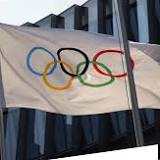Kellogg and PepsiCo are urging Gen Z to eat Doritos and cereal for dinner

Tired of meat and potatoes or chicken and rice for dinner? Food conglomerates like WK Kellogg and PepsiCo are pushing Frosted Flakes and Dorito casserole as pleasing alternatives.
Convenience food brands are asking customers to consider their products beyond their conventional uses, as sales for snack products continue to waver amid inflation-induced price hikes.
WK Kellogg cochairman and CEO Gary Pilnick encouraged cash-strapped consumers to have “cereal for dinner,” in a recent CNBC interview.
“The cereal category has always been quite affordable, and it tends to be a great destination when consumers are under pressure,” he said.
PepsiCo is also asking consumers to get creative with their carbs. At an industry conference in Florida last week, CEO Ramon Laguarta said he hoped consumers would use salty snacks, such as Doritos and Rold Gold pretzels, as “side dishes and ingredients” in meals, extending their purpose beyond a midday or late-night munchie.
Taco Bell consumers are no stranger to Doritos for dinner, such as Doritos Locos Tacos. PepsiCo wants to take this innovation further. At last week’s Consumer Analyst Group of New York Conference, PepsiCo’s presentation included a nod to the Mexico City street food Dorilocos or “walking taco,” an open bag of tortilla chips topped with cucumbers, lime juice, and chamoy, among other ingredients. Last year, Doritos posted a recipe video on TikTok for Spicy Sweet Chili chocolate chip cookies using the eponymous Doritos flavor.
Doritos is PepsiCo’s ground zero to engage with Gen Z, who have turned their backs on sodas to pursue a healthy lifestyle. In December, PepsiCo launched a Doritos-flavored cocktail, which joined the beverage ranks with Starry, PepsiCo’s bid for Gen Z’s preferred soda. WK Kellogg tried to appeal to Gen Z’s healthy sensibilities by launching its Eat Your Mouth Off vegan cereal last month.
Gen Z loves snacks
Gen Z doesn’t mind making meals out of an amalgamation of nibbles, dubbed on TikTok as “girl dinner.” Over half of 2,000 U.S. Zoomers surveyed by Ketchum said they piece together snacks to form a meal on a weekly basis.
These pushes for innovation come after shaky fourth-quarter reports from the snack companies: PepsiCo reported a fourth-quarter revenue drop earlier this month—after years of double-digit price hikes—including a 2% drop in volume for Frito Lay North America. Kellogg’s fourth-quarter sales, which saw a 10% volume drop, tell a similar story, as the company continues to increase prices.
Fortune 500 executives calling for creative cereal and chip uses come at a tumultuous time for snack companies. WK Kellogg’s “cereal for dinner” strategy has been around for years. In 2022, the company awarded $5,000 to five sweepstakes entrants who posted an Instagram photo of themselves eating cereal for breakfast with the hashtag #KelloggsCerealforDinnerEntry. The strategy has been employed to boost sales after the pandemic’s initial cereal boom cooled. Its cereal sales have declined for decades as consumers go in search of healthier breakfasts or fast food offerings. Weight-loss-aiding drugs like Ozempic have tempered food sales at retail giants like Walmart, pressuring junk food brands to shrink portions.
But there’s a reason for these big snack brands to hold out hope. Kellogg’s profits have stayed steady, as price increases counteracted sales dips and as demand for classic products such as Frosted Flakes remain resilient. The U.S. savory snack market is still expected to grow 6% annually from 2022 to 2027.
The continued profits of these companies mean that even though they’re acknowledging consumers struggling to keep up with sky-high prices, they’re unlikely to lower them anytime soon.
Get used to higher prices
Beyond convenience food brands, all groceries have gotten more expensive. While inflation rose 19% over the past four years, grocery food prices have increased 25%. Gen Z is particularly sensitive to these increases as a cost-conscious generation. Almost two of three Gen Zers buy a store’s private brand always or frequently, according to a 2023 Private Label Manufacturers Association survey of 1,000 U.S. Zoomers.
Even after trying to address sales dips, PepsiCo plans to “modestly” increase prices this year. PepsiCo did not respond to Fortune’s request for comment.
One of the reasons for price hikes is “greedflation,” or companies choosing to increase prices, even as inflation cools, taking advantage of consumers who were previously willing to pay more when the economy was more volatile. Food giants Kraft Heinz and Bunge were among several corporations to have their profits outpace inflation in 2022, according to a 2023 study by IPPR and Common Wealth.
But Braden Douglas, CEO of consumer marketing agency Crew Marketing Partners, told Fortune that food manufacturers aren’t entirely the ones to blame for high prices.
“It’s easy to try to point fingers” at manufacturers like PepsiCo, Douglas said, but every part of the food chain is being squeezed.
Mondelez CEO Dirk Van de Put told YahooFinance on Wednesday that the prices of Oreos and Ritz will likely go up as a result of the increased cost of sugar and cocoa. Grocery stores like Kroger are eager to raise product costs not only to maintain margins, but also grow them by nudging customers towards their own cheaper, private-brand products. Manufacturers want to raise prices because they’re also raising wages to combat labor shortages.
No one wants to budge, Douglas said, but there will have to be interventions on multiple dimensions if consumers want to see well-priced products. That means either companies eating costs to counter inflation—Ikea spent $1.1 billion to absorb inflation and lower the price of its goods—or government intervention to subsidize production costs.
“If people really cared about the consumer—which they always say they do, but if they really did—I think that their profit expectation has to change,” Douglas said.


 United Kingdom
United Kingdom Argentina
Argentina  Australia
Australia  Austria
Austria  Brazil
Brazil  Canada
Canada  Germany
Germany  Ireland
Ireland  Italy
Italy  Malaysia
Malaysia  Mexico
Mexico  New Zealand
New Zealand  Poland
Poland  South Africa
South Africa  United States
United States 

































